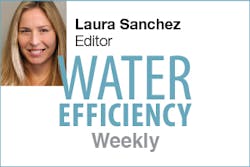For years, a tug-of-war between Republicans controlling the House of Representatives and California’s two Democratic senators over the state’s limited water supply has prevented Congress from resolving critical water allocation issues. But on Wednesday, May 25th, the House endorsed a plan (H.R. 2898) to divert more water from northern California to farmers in the San Joaquin Valley. The 247-169 vote amending the Senate Energy Policy Modernization Act of 2016, is considered a victory for Republicans and includes legislation drafted by Rep. David Valadao, a Republican from Hanford, CA.
Republicans, many of which represent farming communities severely economically impacted by the drought, maintain that current legislation should focus on supporting agriculture and food production by channeling precious water resources to growers.
“Farmland that once fed the world now sits dry,” Majority Leader Kevin McCarthy, a Republican representing Bakersfield, told Andrew Taylor of the Associated Press. “People are losing their livelihoods and their hope.”
However, Democrats such as Jerry McNerney, representing Stockton, are concerned about the environmental impacts of diverting water to farmland, specifically the endangerment of downstream fish populations. Currently under the Endangered Species Act and Clean Air Act, water is allowed to flow to the Pacific in order to support species like the Delta Smelt, the longfin smelt, and the Chinook winter-run salmon. Democrats argue that the measure may deprive northern California farmers of water while endangering fish populations.
“These provisions would undermine 40 years of progress,” McNerney told the Associated Press. “The provisions in the bill will weaken the Endangered Species Act and set a precedent of putting aside environmental protections.”
They’re also concerned about the big picture. “The fact is we have a broken water system,” said Representative Jim Costa of Fresno. Costa is one of several Democrats that crossed party lines to vote in favor of sending additional water to farmers in the San Joaquin Valley and who attribute much of the issue on flawed environmental policies.What are your suggestions for a bipartisan solution?
